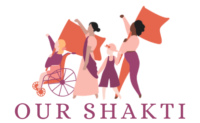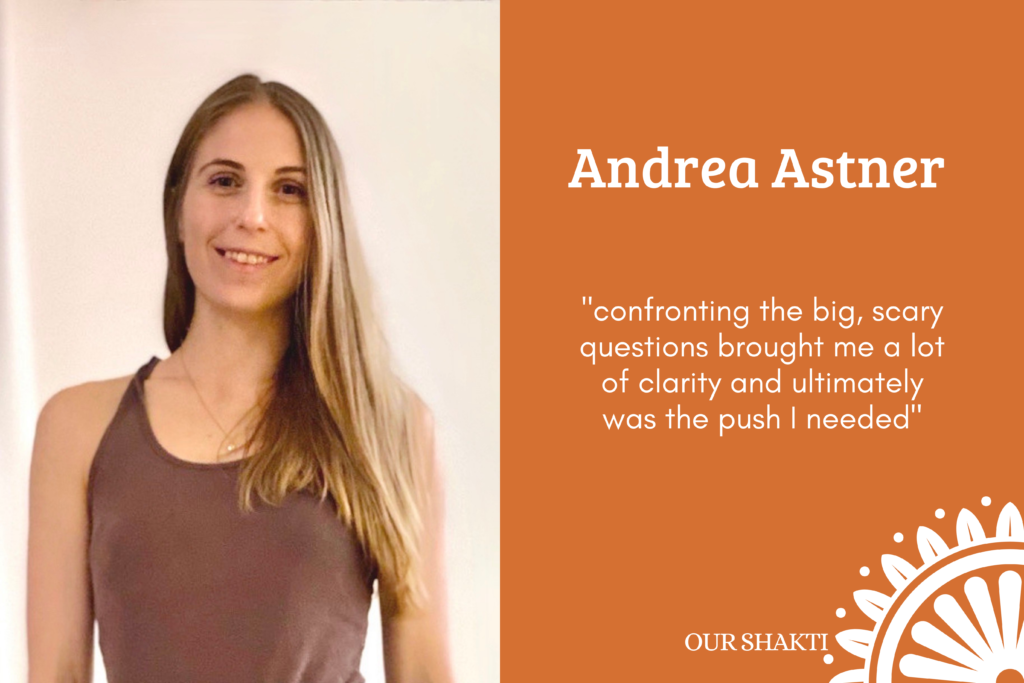In the interview of April, I am talking with Andrea Astner about her daring decision to start her own business and leave a stable 9-5 job at a well-known international consultancy company. She describes herself as a productivity coach & dog mom, currently based in Bucharest.
Andrea has a BSc in International Business Administration and an MSc in Business Information Management, although before even finishing her studies she transitioned into cybersecurity. After graduating, she joined a big corporate as a cybersecurity consultant and worked mostly as an ethical hacker, testing clients’ web applications and IT infrastructure for security weaknesses.
Her hobbies include solving puzzles, doing aerial hoops, yoga, reading, playing the piano, and organizing/decluttering!
Andrea, you quit your job a while ago. What led to that decision?
After a few really busy months at work, I scheduled a half-year sabbatical starting May 2020, which was initially intended for relaxing and doing some traveling. Needless to say, the timing wasn’t great and my travel plans turned into months of pandemic lockdown.
During that period, I spent a lot of time reflecting on the choices that had gotten me where I was and what I wanted to do in the future. It dawned on me that I had always been so focused on doing well at school and taking that “next step” in pursuit of a corporate career, that the options I had considered were incredibly limited (cybersecurity wasn’t even among them until one lucky coincidence). And while my job at the time turned out to be way cooler than what I had studied at university, I also didn’t see myself spending all day every day at my consulting job in the long run (at some point I also saw how I had gotten completely burnt out from it).
Realizing the above felt like a slap in the face. I had worked so hard for so long on something that ultimately just wasn’t right for me. Worst of all, I had no idea what was right for me and it felt like I was back to square one.
I spent a few more weeks trying to figure out what kind of lifestyle I wanted to have and what I might enjoy doing. At some point I then started having this nudge about coaching — I had always loved personal development, could talk about it for hours, enjoyed helping friends improve their lives in various ways, really liked the flexibility and time-/location-freedom that working with one-on-one clients could offer… But I kept having a lot of resistance to the thought of becoming a coach. I could hear all the judgments in my mind: you didn’t get your MSc to end up being an online coach, being a coach isn’t a “real” job, nobody will take you seriously, who would possibly pay you to coach them?, there are already so many coaches out there…
Eventually, I decided to try this coaching thing out and joined a program that taught me about the psychology behind coaching, how to work with clients, how to ask the right questions, etc. At the same time, my sabbatical was quickly coming to an end and the thought of being back to my +40-hour workweeks felt dreadful and overwhelming, especially since I was only just starting to recover from my burnout. I remember having about two weeks left and opening up my work laptop to see what I had missed. Seeing my inbox and the back-to-back projects I was already scheduled on from the moment I was supposed to get back was the moment I decided to quit and start my own coaching business.
In what way does our (millennial and Gen Z) generation think differently about corporate jobs compared to the generation before us?
I think our generation is starting to look at the idea of going to university, getting a degree and climbing the corporate ladder a lot more critically. Growing up that was always my goal and it never really occurred to me to do anything else, like starting my own business or getting a fun non-corporate job. It was quite the rude awakening when I got there and found myself being miserable, with my days revolving entirely around work.
I think people are taking a much more holistic approach to their careers now, where it’s less about prestige, money and job security, and more about how a job matches one’s values and desired lifestyle (e.g. do you really want to work 40-hour weeks? Is this really a company whose mission you want to support? Does it have a friendly and supportive work environment that doesn’t just look at you as a number?).
Would you say that you have to go through a dark period for an awakening to occur?
I don’t think it’s necessary to go through a sort of dark time for things to change, however I do believe that that’s what happens in most cases. We are quite literally programmed to (subconsciously) avoid danger and any big changes involve a lot of uncertainty, which our system perceives as a threat. As a result, it takes a lot of energy and determination to change from a place of willpower alone. It’s much easier to tell ourselves that things aren’t actually so bad, that we’ll look into a career change once things are less busy, that now is not a good time economically speaking to start a business, that we just don’t have this passion everyone is always talking about…
While it wasn’t a super fun time to go through, I’m incredibly glad things worked out the way they did. Confronting the big, scary questions brought me a lot of clarity and ultimately was the push I needed in order to actively take a different, more aligned path.
Tell us more about your business!
My business has taken a few twists and turns, but I’m happy to say that I’ve finally figured out my niche! In a nutshell, I help new entrepreneurs (mostly coaches) overcome procrastination and get organized so they can finally make progress and build their business.
When clients come to me they are usually completely overwhelmed. They have a million things to do and have lots of ideas, but everything is spread all over the place (phone notes, physical notebooks, loose papers, digital files and folders…). On top of that there’s the confusion that comes with having to figure out all sorts of things for the first time and the limiting beliefs that are suddenly surfacing.
What I work on with them includes:
- Getting organized. We set up clients’ custom-built Personal Life and Business workspaces in Notion (if you’re not familiar with it, check it out! Best. App. Ever!). The goal is for them to keep everything digital in one place and to know exactly where to find what — think digital Marie Kondo.
- Setting up processes. We look at the big picture (including from a lifestyle design perspective) and figure out how to translate that into small, actionable steps. The idea is to know exactly what to work on when and how it ties into bigger goals. After that we come up with a client-specific planning system that allows them to optimize for productivity, but without the usual rigidity and hustle mentality that often comes with time management techniques.
- Understanding the psychology & biology of progress. Most clients I work with are high achievers and perfectionists, who are incredibly hard on themselves for procrastinating or not progressing quickly enough. Here we dive into the root causes of these patterns (spoiler alert: they are subconscious protection mechanisms) and they learn how to make progress in a way that works with rather than against their nervous system.
Aside from the above, I also do one-on-one Notion consultations (basically covering the first pillar of my coaching program), and I’m just getting ready to launch my Etsy store for Notion templates.
What do your days look like now?
Very different! While I currently don’t have a set way of structuring my week, I’m a big fan of lifestyle design, so that’s also how I approach my business. Here are some examples:
- I no longer use an alarm clock. I always hated that mini-heart attack I’d get when my alarm went off, so I now just wake up naturally (usually around 8.30am)
- Related to the previous point, mornings are me-time. I don’t schedule any early appointments and start my day more relaxed and intentionally, which sometimes involves work activities and other times doesn’t
- I try to stick to max 3 hours of deep work per day. I noticed that I’m way more productive, motivated and energized when I set this limit, and struggle a lot less with procrastination than when I just blindly work all day long
- I have 2 days on which I’m available for coaching calls and work with max 5 clients at a time. I find that this leaves me plenty of freedom to decide how I spend my time and enables me to easily take a day off or travel without having to plan it way in advance
In general, I’m doing a fair bit of experimenting with how different activities affect my energy levels and try to keep a good balance between work that’s fun and work that’s more tiring — after all, the whole point here is to make work fit me and not to end up creating another 9-to-5 🙂
What would you say is difficult about starting your own business?
Wearing all the different hats (legal, accounting, business strategy, marketing, sales, social media, coaching…), figuring out what they involve in the first place, and staying on top of it all.
Are you happy with your decision to start a business? Why?
Yes! I honestly can’t even imagine going back to a regular 9-to-5 office job at this point. What I love most is simply having the freedom to choose what I work on, when and with whom (my clients are awesome!).
Is there anything you wish to share with the readers about following your own path?
Stop trying so hard to avoid discomfort and let yourself explore the scary questions! I think we often hold the implicit assumption that as soon as we admit to ourselves that something needs to change, we must follow-up right away and make the scary change. But you don’t! Letting yourself truly think things through without judgment or without your mind immediately shutting you down is just the first step in figuring out what’s right for you. Avoiding it is a guaranteed way to staying stuck. I think for me, I had known deep down that something was off for years, but instead of addressing it head on I buried my head in the sand hoping it would go away or work itself out on its own. Even once I started considering building my own coaching business, it took the better part of half a year to actually take the necessary steps to start working with clients, and that’s okay!
What’s next?
My business is still very much in the early stages, so for the foreseeable future I’ll be continuing to build that. I do really enjoy learning though, so I’m also considering starting a degree in Cognitive Science or picking up software development just for fun!
If this interview resonated with you or you have any questions, you’re more than welcome to say hi @AndreaAstner 🙂

